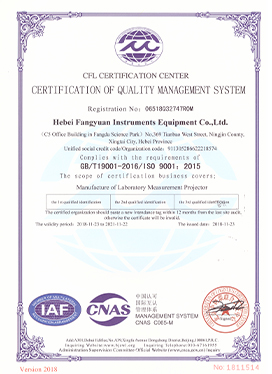Cable Torsion Test Equipment for Evaluating Performance and Durability in Engineering Applications
Understanding Cable Torsion Testing Machines
In the realm of engineering and material science, the assessment of materials' mechanical properties is crucial for ensuring safety and reliability in various applications. One specialized piece of equipment used for this purpose is the cable torsion testing machine. This device plays a pivotal role in analyzing the torsional strength and flexibility of cables, which is vital for industries ranging from telecommunications to aerospace.
A cable torsion testing machine is designed to apply a controlled torque to a cable specimen while measuring the resulting angular displacement. This test mimics the real-world conditions that cables encounter during their usage, such as twisting and bending. Understanding how a cable performs under torsional stress can reveal critical insights into its durability, structural integrity, and overall performance.
The testing process begins with the preparation of the cable sample. The cable is securely mounted in the machine, ensuring that it is properly aligned to prevent any unintended flexing that could skew the results. Once the cable is in place, the operator sets the desired torque levels and starts the machine. As the machine applies torque, sophisticated sensors measure the angle of twist, providing real-time data that can be analyzed.
cable torsion testing machine

The data collected during the test can be plotted on a torque-twist curve, which illustrates the relationship between the applied torque and the resulting angle of twist. The shape of this curve is telling; a linear relationship indicates that the cable behaves elastically, while deviations from linearity may suggest the onset of plastic deformation or eventual failure. This information is invaluable for engineers who must understand how cables will behave under operational conditions.
There are several key parameters that engineers focus on during testing. The first is the maximum torque a cable can withstand before failure, known as the ultimate torsional strength. This value is critical for determining the maximum load a cable can handle in practical applications. Additionally, the angle of twist at failure provides insights into the ductility of the material; a cable that twists significantly before breaking may be more desirable in applications where flexibility is needed.
Beyond assessing mechanical properties, cable torsion testing machines can also facilitate quality control during production. By testing samples from each batch, manufacturers can ensure that their products meet specified standards and mechanical properties, thereby minimizing the risk of failure in the field.
In conclusion, cable torsion testing machines are indispensable tools in the evaluation of cable materials. They enable engineers to understand the mechanical behavior of cables under torsional stress, providing data that underpins safety and performance in various applications. As industries continue to innovate and push the limits of material science, the importance of precise testing equipment like the cable torsion testing machine will only increase. By investing in such technology, manufacturers and engineers can ensure that they produce reliable and robust cable products that meet the demands of modern applications.
-
The Role of Tensile Force Testers in Quality Control and Material Science
NewsAug.01,2025
-
Maintenance and Safety Tips for Aging Ovens
NewsAug.01,2025
-
Density Balance in Forensic Science
NewsAug.01,2025
-
Advanced Optical Measurement Technologies
NewsAug.01,2025
-
A Buyer’s Guide to Tensile Test Machines
NewsAug.01,2025
-
Why the Conductor Resistance Constant Temperature Measurement Machine Redefines Precision
NewsJun.20,2025
 Copyright © 2025 Hebei Fangyuan Instrument & Equipment Co.,Ltd. All Rights Reserved. Sitemap | Privacy Policy
Copyright © 2025 Hebei Fangyuan Instrument & Equipment Co.,Ltd. All Rights Reserved. Sitemap | Privacy Policy
